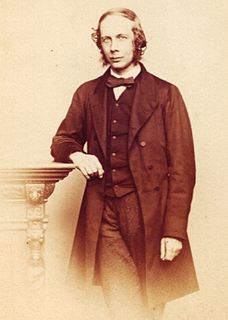A Quote by Charles Sanders Peirce
A quality is something capable of being completely embodied. A law never can be embodied in its character as a law except by determining a habit. A quality is how something may or might have been. A law is how an endless future must continue to be.
Related Quotes
One of the things about being a law student is that the academic discipline of law is very often removed from the practical reality of law. How to complain, who to complain to, and whether or not you even need to invoke the law is very different in the real world from how it's examined in the lecture theatre.
Goddammit. Yeah, I have. First, there's a huge difference between being arrested and being guilty. Second, see, the law changes and I don't. How I stand vis-à-vis the law at any given moment depends on the law. The law can change from state to state, from nation to nation, from city to city. I guess I have to go by a higher law. How's that? Yeah, I consider myself a road man for the lords of karma.
Lawyers, before any other group, must continue to point out how the system is really working-how it actually affects real people. They must constantly demonstrate to courts and legislatures alike the tragic results of legal nonintervention. They must highlight how legal doctrines no longer bear any relation to reality, whether in landlord and tenant law, holder in due course law, or any other law. In sum, lawyers must bring real morality into the legal consciousness
The Bible is interpreted by the Talmud. Except, in Rabbinic tradition, a Talmudic law has the weight of the Biblical law. Sometimes we say in a prayer, "Blessed are Thou, O God, who has ordered us and commended us," to do something. But you don't find that "something" in the Bible; you find it in the Talmud. So Talmudic law becomes as important as Biblical law.
There is one all-important law of human conduct. If we obey that law, we shall almost never get into trouble. In fact, that law, if obeyed, will bring us countless friends and constant happiness. But the very instant we break the law, we shall get into endless trouble. The law is this: Always make the other person feel important.
Thus, if there exists a law which sanctions slavery or monopoly, oppression or robbery, in any form whatever, it must not even be mentioned. For how can it be mentioned without damaging the respect which it inspires? Still further, morality and political economy must be taught from the point of view of this law; from the supposition that it must be a just law merely because it is a law. Another effect of this tragic perversion of the law is that it gives an exaggerated importance to political passions and conflicts, and to politics in general.









































